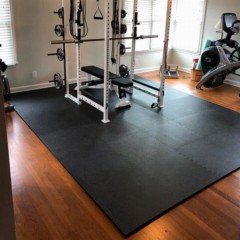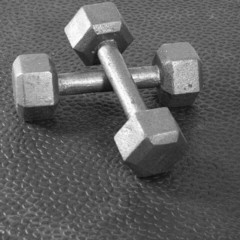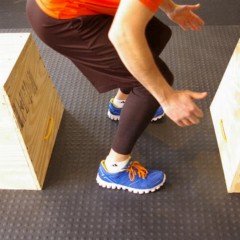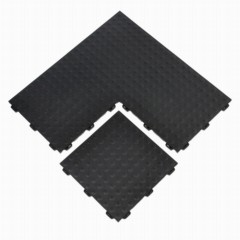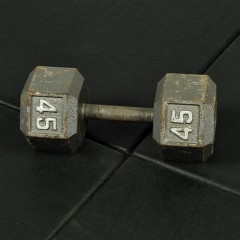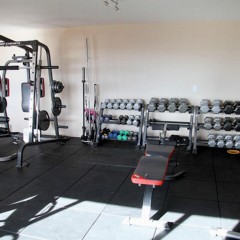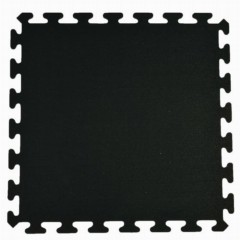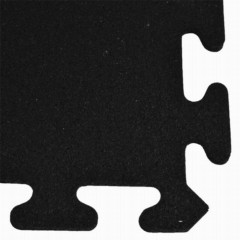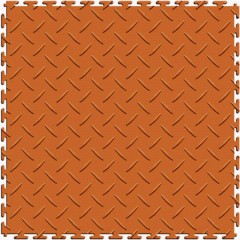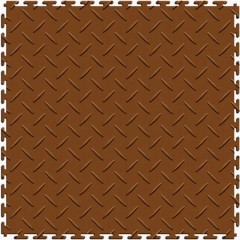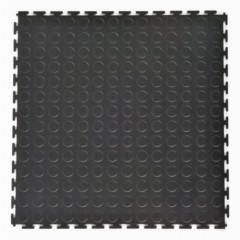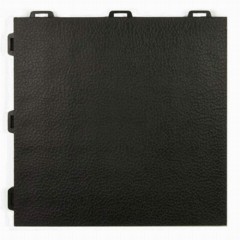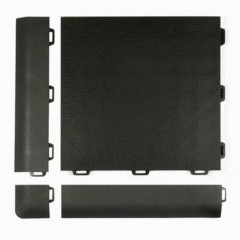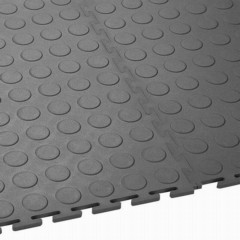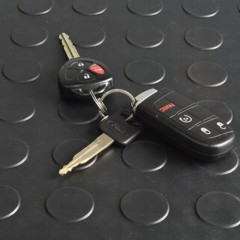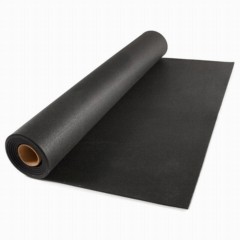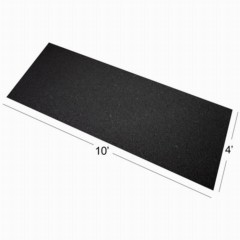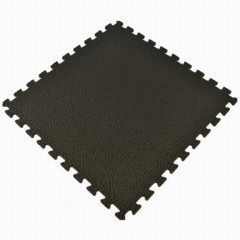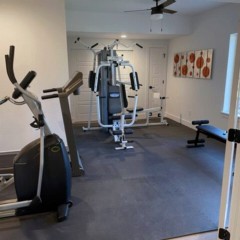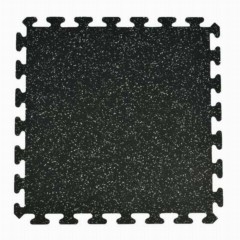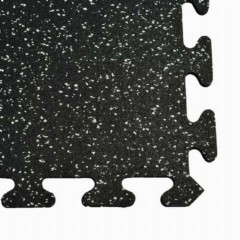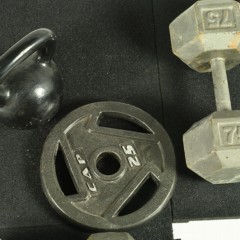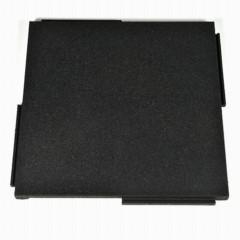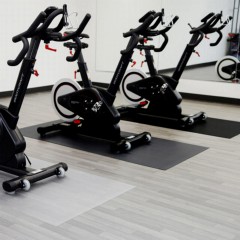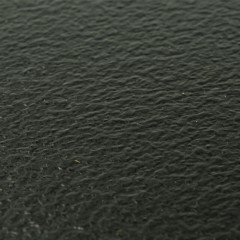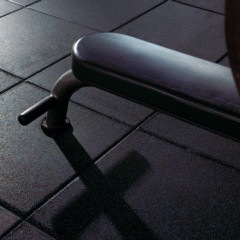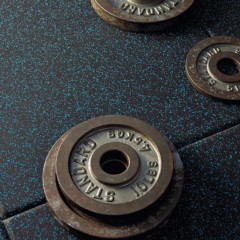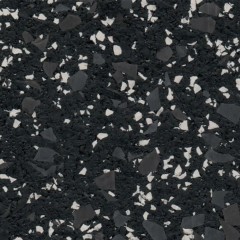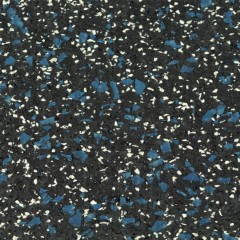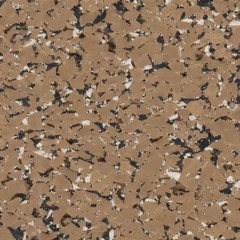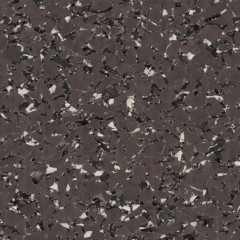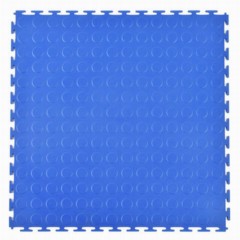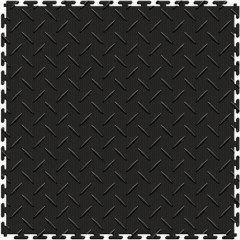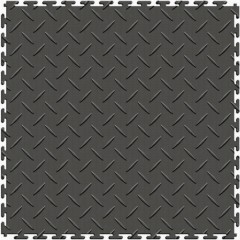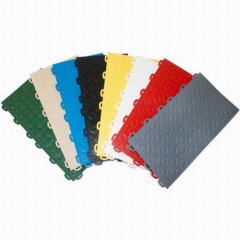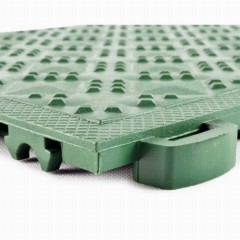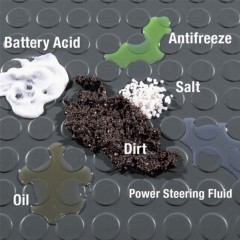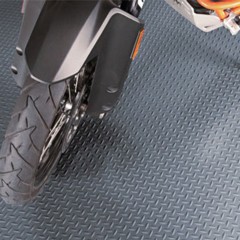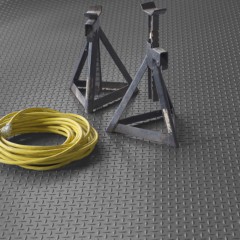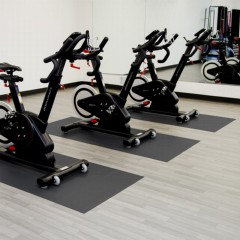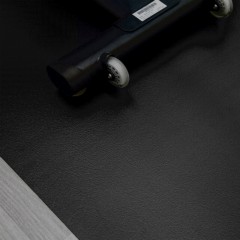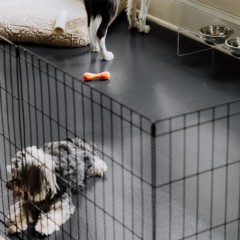Garage Gym Flooring Options
Creating a workout area is a great way to take advantage of extra space in your home or garage, which makes garage gym flooring options from Greatmats such a popular choice.
We offer products that deliver protection against wear and tear, and that have cushioning properties. It’s important to think about how the space will function, so you can select the right product.
Factors to Consider for Garage Gym Flooring
When selecting a garage gym floor product, it’s important to consider a few key factors.
- Moisture: With dry concrete the most commonly used flooring is rubber flooring. For wetter garage floors consider a raised floor tile option.
- Weight: Some gym mats for a garage need to support the weight of exercise gear.
- Comfort: When your workouts involve laying down, sitting, or kneeling, a comfortable garage gym floor is key, such as a foam tile version.
- Impact: If you need your gym flooring for a garage to be able to support large barbells being dropped on it, look for thick floors with this capability, such as a rubber mats.
- Activity: If you will be doing high-intensity workouts, you may need a specific type of anti-slip workout flooring for a garage that doesn’t show wear and tear versus floors made for low-intensity workouts.
Types of Garage Gym Flooring
Most of the design types for garage gym floors that we offer allow for a DIY installation, making it easy to set up your workout surface on a tight budget.
- Tiles: Because you can install interlocking floor tiles yourself, using a simple puzzle style edge or a hidden connection system, this is our most popular selection for home installations.
- Mats: Workout mats have a pre-cut size that works for a single person to use comfortably or that fits under weight benches.
- Rolls: Rolls of rubber can quickly cover a large space or can add some cushioning against the concrete subfloor in the garage.
Materials Found in Garage Gym Flooring
With a garage gym area, selecting the right material to match the plans for the space is key.
- Rubber: For weightlifting, rubber tiles and mats provide protection for the concrete subfloor and cut down on noise.
- Foam: Foam tiles have a bit of extra cushioning for ground-based workouts or to protect lower body joints from fatigue.
- PVC plastic: PVC is a highly versatile material for use in a gym, and some low-profile PVC tiles deliver the ability to support the weight of parked cars.
- Turf: Turf is ideal for sprint or ground-based workouts. In a garage gym, it provides extra comfort when you select turf with a foam backing.
Features and Benefits of Garage Gym Flooring
One of the best features of these tiles is the ease of installation. We design these tiles for easy DIY installs, so you can save money versus having to hire a pro.
These tiles can provide insulation against a cold concrete garage floor, while also providing waterproof benefits.
Ultimately, the best feature of flooring for a garage gym is that it gives you the ability to turn this space into something more than a storage area or a place to park your car. With the right flooring in place, it’s like you’re receiving a bonus room in your home for a minimal cost, rather than having to take up a spare bedroom with workout equipment.
Garage Gym Flooring Q&A
Can I Drive My Car on Garage Gym Flooring?
A primary consideration for flooring for a garage gym is whether the space will have a dual purpose. Will you park your car in the space while also using it for a gym? If so, you need specific flooring products for your home gym in a garage.
Never drive your car on tiles made from rubber or foam, raised base tiles, or turf. For tiles you can drive on, stick with flat and low-profile PVC plastic tiles, including:
Also PVC plastic is resistant to automotive fluids and will minimize friction with motor vehicle tires as they turn over the top of the surface.
What are the best garage gym tiles?
The
best garage gym tiles need to be rugged and better cushioning than a bare concrete subfloor. Ultimately, though, they need to match the use case you have in mind. If you are ever unsure exactly which flooring product you should use, reach out to Greatmats’ customer service team.
What is the best flooring for dropping weights?
Without some sort of cushioned flooring in place, dropped barbells and dumbbells could damage the subfloor.
Rubber flooring is ideal for weightlifting areas. Use rubber at least 3/4 of an inch thick for dropping barbells of more than 100 pounds.
How do you choose among rubber, foam, or PVC for a garage gym floor?
Choosing the right gym garage flooring involves thinking about how you will use the space. Rubber is great for weightlifting, while foam provides cushioning for fitness or ground-based workouts. PVC has some of the benefits of both rubber and foam, and some models have a raised base to help with air flow on the garage subflooring.
What is the best flooring for a garage gym?
The
best flooring for a garage gym should match the type of workouts you want to do. Weightlifters will want thick rubber flooring. Those who need cushioning for working from the ground or for high-intensity aerobic workouts would prefer foam or PVC plastic. Having an anti-slip texture on the surface can be important, too.
1 reviews •2 Colors
$7571 /Carton You Save 20%$3.64/sqftShop$635 /Tile You Save 24%$6.35/sqftShips Out in 1-3 Working DaysShop$16417 /Carton You Save 14%$5.91/sqftShop $9245 /Roll You Save 37%$2.31/sqftShips Out in 1-3 Working Days SustainableShop$635 /Tile You Save 38%$1.64/sqftShips Out in 1-3 Working Days Free ShippingShop$1540 /Tile You Save 20%$3.97/sqftShips Out in 1-3 Working Days SustainableShop$2841 /Tile You Save 18%$7.10/sqftShop$3594 /Mat You Save 20%$2.22/sqftShips Out in 1-3 Working DaysShop$3264 /Tile You Save 19%$8.16/sqftShop$3136 /Tile You Save 20%$7.84/sqftShop$3392 /Tile You Save 19%$8.48/sqftShop$3840 /Tile You Save 20%$9.60/sqftShop$9117 /Carton You Save 19%$4.38/sqftShop$7571 /Carton You Save 20%$3.64/sqftShop$1368 /Tile You Save 20%$9.84/sqftShips Out in 1-3 Working DaysShop$31393 /Roll You Save 20%$2.43/sqftShips Out in 1-3 Working DaysShop$12312 /Roll You Save 20%$2.46/sqftShips Out in 1-3 Working DaysShop$4717 /Mat You Save 20%$2.25/sqftShips Out in 1-3 Working DaysShop$9504 /Roll You Save 19%$1.90/sqftShips Out in 1-3 Working DaysShop
$9245 /Roll You Save 37%$2.31/sqftShips Out in 1-3 Working Days SustainableShop$635 /Tile You Save 38%$1.64/sqftShips Out in 1-3 Working Days Free ShippingShop$1540 /Tile You Save 20%$3.97/sqftShips Out in 1-3 Working Days SustainableShop$2841 /Tile You Save 18%$7.10/sqftShop$3594 /Mat You Save 20%$2.22/sqftShips Out in 1-3 Working DaysShop$3264 /Tile You Save 19%$8.16/sqftShop$3136 /Tile You Save 20%$7.84/sqftShop$3392 /Tile You Save 19%$8.48/sqftShop$3840 /Tile You Save 20%$9.60/sqftShop$9117 /Carton You Save 19%$4.38/sqftShop$7571 /Carton You Save 20%$3.64/sqftShop$1368 /Tile You Save 20%$9.84/sqftShips Out in 1-3 Working DaysShop$31393 /Roll You Save 20%$2.43/sqftShips Out in 1-3 Working DaysShop$12312 /Roll You Save 20%$2.46/sqftShips Out in 1-3 Working DaysShop$4717 /Mat You Save 20%$2.25/sqftShips Out in 1-3 Working DaysShop$9504 /Roll You Save 19%$1.90/sqftShips Out in 1-3 Working DaysShop